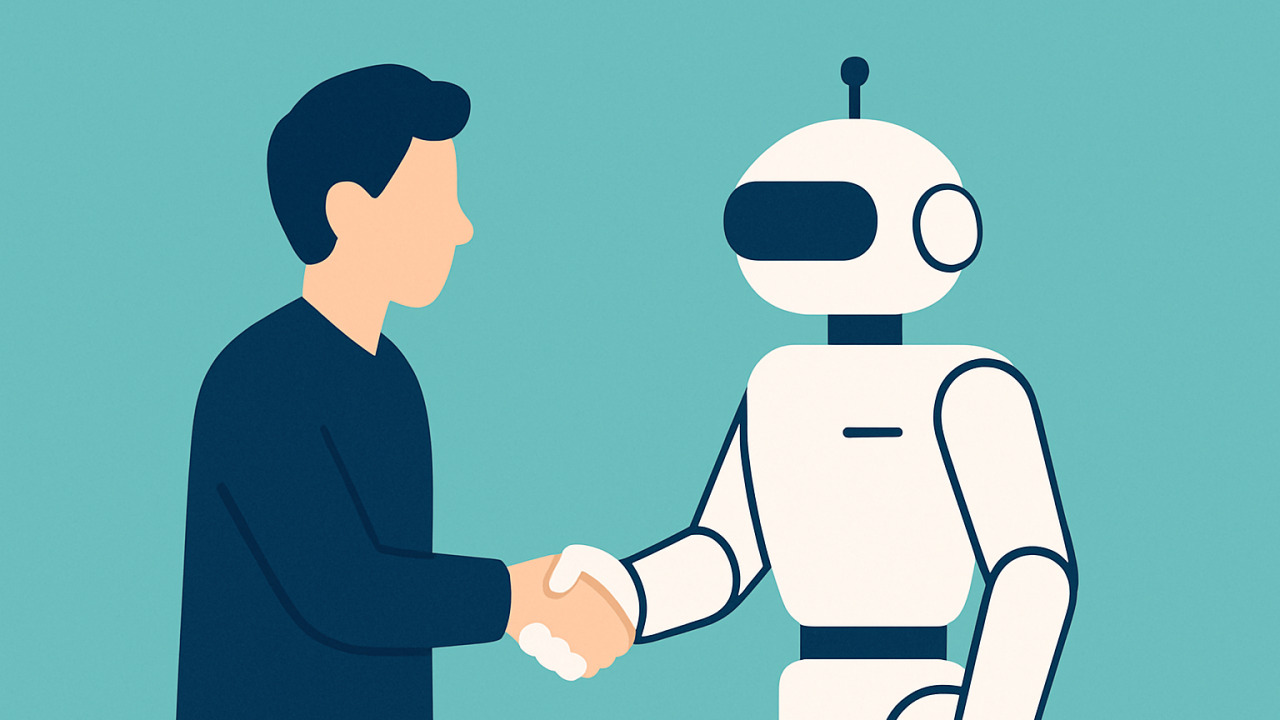Don’t Let AI Make You Forget the Humans: Belonging Still Matters at Work

Some days, I feel like I disappear at work.
As an introvert, I don’t naturally jump in during meetings or interrupt to make my point. I prefer to think, then speak. But in fast-paced environments, that often means being overlooked. When I’m not heard, I feel like I don’t belong. And when that happens, I overcompensate—I work harder, prep more, speak less. I quietly hope someone notices.
But when I am heard—when someone circles back and says, “What do you think?”—I light up. I feel like part of the team. That feeling? It’s called belonging, and it’s one of the most underrated forces in any workplace.
Now that AI is becoming embedded in our daily work, the risk is that we lean too far into automation and optimization—and forget to check in with the actual people doing the work.
Belonging Is a Basic Need, Not a Bonus
People don’t do their best work when they’re trying to prove they belong. They do their best work when they already feel like they do.
Belonging isn’t about team-building events or free snacks. It’s about feeling respected, heard, and safe to be yourself. When teams have high belonging, they also have higher performance, lower turnover, and better collaboration. It’s good for people, and it’s good for business.
AI Is a Tool, Not a Substitute for Culture
AI can help us work faster—but it can’t tell us how people feel. It doesn’t know who’s quietly struggling or who’s feeling left out. If we’re not intentional, AI can amplify biases, reward visibility over value, and push quieter team members further into the margins.
But used well, AI can also become an equalizer. And this is where introverts can begin to thrive.
Why Introverts Might Excel in the Age of AI
AI gives us space to think before we speak. It allows more communication to happen asynchronously—through thoughtfully written prompts, messages, or planning documents—rather than who can talk fastest or loudest in a meeting.
Tools like GPT and other AI copilots reward clarity, curiosity, and reflection. They don’t care how loud your voice is. They care how clearly you can communicate an idea. That’s where introverts often shine.
In an AI-assisted workplace, deep work and thoughtful problem-solving matter more than ever. That’s a big shift from the performative culture of being “always on.”
Still, systems need to be designed intentionally to ensure people don’t fall through the cracks.
Simple Checkpoints to Foster Belonging
Here are some practical ways managers and teams can keep belonging front and center—even as AI tools and automation become the norm:
✅ 1. Belonging Feedback Loop
Once a quarter (or more often), ask your team directly:
- “Do you feel included on this team?”
- “Do you feel like your ideas are heard?”
- “What’s one thing we can do to help you feel more connected?”
Keep it short, anonymous if needed, and follow up with real changes. This builds trust.
✅ 2. 1-on-1s That Aren’t Just About Work
Use part of your regular 1-on-1 time to ask human questions:
- “How are you feeling about work lately?”
- “Is there anything you need more of—from me or the team?”
These conversations uncover what dashboards miss.
✅ 3. Balance the Airtime
In meetings, make space for quieter voices. That could mean:
- Sending questions ahead of time so introverts can prepare
- Going around the (virtual) room before moving on
- Following up after the meeting if someone didn’t get to speak
Belonging happens when people feel safe to contribute, not pressured to perform.
✅ 4. Recognize Invisible Work
Not all contributions show up in metrics. Notice who’s:
- Helping new hires
- Fixing small but critical process issues
- Keeping morale up
AI won’t track this. You should.
✅ 5. Use AI to Reduce the Wrong Work
AI should free people from soul-sucking tasks—not push them to work faster with less input. Ask your team:
- “What part of your job feels like a waste of time?”
- “Where could automation help you focus on what matters?”
Then use tools to support their needs, not just leadership’s goals.
The Future of Work Needs Us to Stay Human
AI can’t care. People can.
And the people on your team will remember how they felt working with you far more than which platform you automated or which process you improved. Belonging doesn’t slow progress—it fuels it.
For introverts especially, this is a chance to reset how we show up and are seen. AI can help us surface our contributions in ways that don’t require constant self-promotion.
So before you chase the next tool or metric, ask yourself:
Who on my team might feel unheard right now? And what small thing can I do today to make them feel seen?

